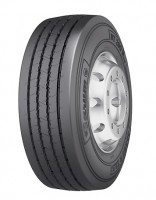Short journeys a drain on car batteries
According to Kwik Fit, more than 7.3 million British drivers have experienced battery trouble in the last two years, with 57 per cent of these motorists needing to replace the battery in their car.
The biggest single drain on a car’s battery is the charge needed to start the engine from cold, and short journeys don’t provide enough time for the battery to be fully recharged. Kwik Fit suspects that the high number of drivers experiencing problems could be connected to another main finding of its research – that for 41 per cent of drivers, their average daily journey is 15 minutes or shorter. A further 20 per cent of motorists have an average daily journey time of between 16 and 20 minutes, meaning the majority of drivers’ daily journeys are 20 minutes or under.
At this time of year, the cold weather exacerbates the issues caused by these short trips, with many drivers experiencing problems when they want to set off for work. The two hour period between 7 and 9am is the peak time for battery problems, with 21 per cent of drivers suffering at this time of day. This is reflected in the knock on impact for those with battery problems – 22 per cent said they were late for work as a result, while nine per cent said they missed an important appointment.
Kwik Fit also found that battery issues have been financially costly for many motorists – eight per cent had to hire a car or taxi at their own expense, while four per cent said they missed a flight as result of their battery problems. Battery problems have also caused drivers to lose out on once in a lifetime events, with six per cent of those experiencing battery issues missing concerts, plays or other entertainment. However, arguably the biggest impact has been on the three per cent who were late for a wedding.
London drivers are most vulnerable to battery problems, with 43 per cent of the capital’s motorists claiming they have had trouble in the last two years, nearly twice the national average of 23 per cent and more than six times the proportion of drivers in Wales (seven per cent), the region which had the lowest level of problems.
“Although battery technology has improved dramatically, the demands placed on them by in car technology has also increased,” says Roger Griggs, communications director at Kwik Fit. “If drivers experience any sort of issue with their battery, such as it taking longer than normal to start their engine, then we would advise that they get the health of the battery checked out as soon as possible.
“Kwik Fit can carry out a free battery health check to assess the condition of a battery and whether it’s holding its charge effectively,” Griggs adds. “This will give drivers advance warning of any problems, rather than finding out on a cold winter’s morning when they need to get somewhere urgently.”
Kwik Fit says it offers a free winter safety check in which the health of the battery will be tested, as well as the condition of the car’s tyres, the level and strength of coolant, wiper blades and light bulbs.





Comments